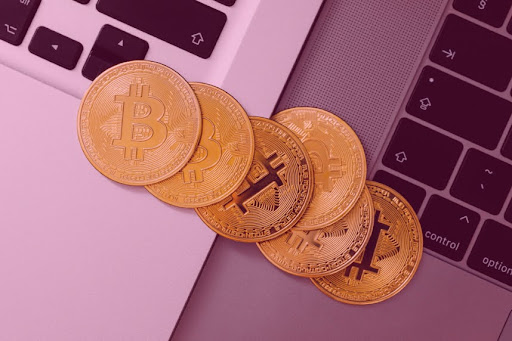
Bitcoin mining, also called digging, is a process for verifying transactions and adding them to the blockchain. It involves miners, who are individuals or entities that use powerful computers to solve complex mathematical problems. When a problem is solved, a new block is created and added to the blockchain, and the miner who solves the problem first is rewarded with bitcoin.
Purpose of Bitcoin mining
Bitcoin mining allows anyone with the right equipment to contribute to the network’s security. When a transaction occurs, miners verify it by grouping transactions into blocks and adding them to the blockchain, preventing double-spending of the same bitcoin. Mining also functions as a method for releasing new bitcoins into circulation. The first to solve the problem gets to add the block to the blockchain and is rewarded with bitcoin. This system, known as "Proof of Work," secures the network and maintains its function.
How the mining process works?
The bitcoin mining process involves miners competing to solve complex mathematical problems, which includes several steps:
- Block creation: Transactions awaiting validation are collected in a mempool, which acts as a waiting room for unverified transactions. Miners select transactions from the mempool and place them into a block, ready to be added to the blockchain once a miner solves the mathematical problem.
- Hash function: The miner’s computer generates a unique hash, a long code, for the block by testing different values until the correct solution is found. A hash is a result of a cryptographic function, acting as a "fingerprint" for the block.
- Problem-solving: Solving the hash problem requires computing power and time, as the miner tests millions of combinations per second. The first miner to find a correct hash adds the block to the blockchain and is rewarded with new bitcoins.
- Block verification: After a miner finds the solution, the block is verified by other nodes/computers in the network to ensure it is correct. Once approved, the block is added to the blockchain permanently.
- Reward: As a reward for their work, the first miner to solve the block receives a certain amount of bitcoin, which is part of the economic incentive structure that makes mining profitable and ensures the network continues to function.
Is bitcoin mining legal in Sweden?
Yes, bitcoin mining is legal in Sweden. It is essential to understand the regulations regarding taxation and energy consumption, as mining requires a large amount of electricity. The Swedish Tax Agency views mining as a form of business activity, and income from mining must therefore be taxed.
How to start mining bitcoin?
To start bitcoin mining, you need to have the proper equipment and software. Here are the steps to get started:
- Get the right equipment: Mining requires specialized computers, called ASIC devices, designed solely to mine cryptocurrencies. Graphics processors can also be used but are less efficient alternatives.
- Install mining software: Choose reliable software that supports Bitcoin mining. Examples include CGMiner, BFGMiner, and NiceHash.
- Join a mining pool: By joining a mining pool, you can share your computing power and receive payouts based on your contribution. Popular mining pools include Braiins Pool, Antpool, and F2Pool.
How is Bitcoin created?
New bitcoins are created through mining. Each time a new block is solved and added to the blockchain, the miner is rewarded with a certain amount of bitcoin, introducing new bitcoins to the market.
Is mining profitable?
Mining profitability depends on several factors. In Sweden, electricity prices can make it challenging to maintain profitable mining operations without access to cheap energy.
Tips and insights from BTCX
- Calculate costs and profitability: Calculate your costs for equipment, maintenance, and electricity before starting Bitcoin mining.
- Choose the right equipment: To mine effectively, you need specialized equipment designed to mine Bitcoin. Choose reliable equipment and stay updated on the performance requirements needed to mine.
- Join a mining pool: If you are new to mining, a mining pool can be a good start. By sharing computing power and rewards with other miners, you increase your chances of receiving rewards regularly, even if you contribute only a small part of the total computing power.